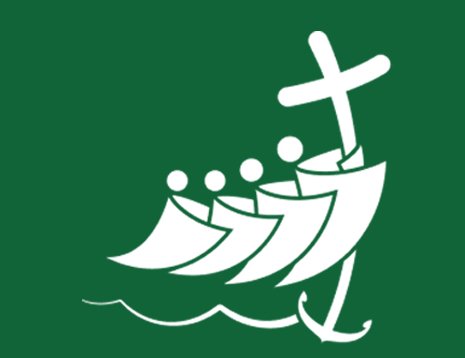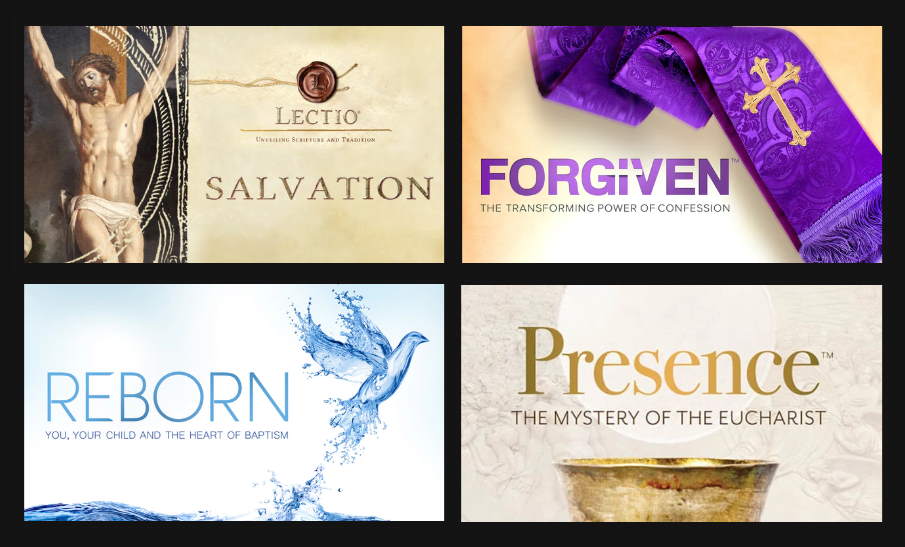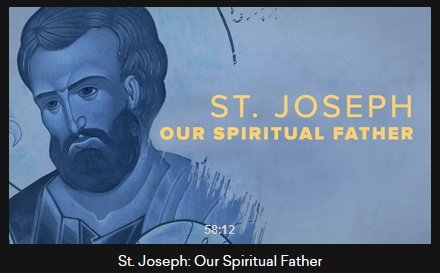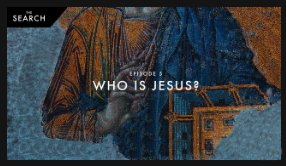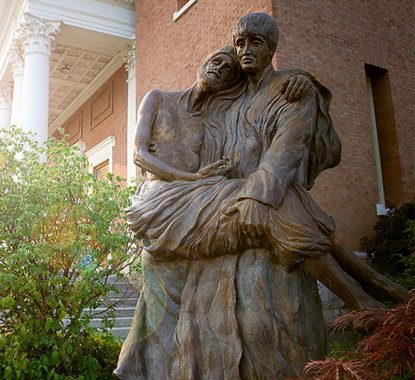Missioned To Be Fishers Of Men
Homily 02 07 2016
5th Sunday in OT - C
Homily 02 07 2016
5th Sunday in OT - C
View the Readings for this day
One day God sends Jesus to us and he tells us to “put out into deep water” – to move in a new, and frightening, direction. The message might come from a person or a sermon, a book, a television program, a news item in the papers.
Sometimes Jesus speaks to us from a negative experience – failure, rejection, falling into a sin we thought we would never commit, recognition that we are addicted to drugs or drink or power.
We each have our deep water we must put out into: be reconciled with someone we have refused to speak to for years; give up devotions we love and move to a more contemplative prayer; start working among the poor; get involved in community development; go back to school; join AA; do a Marriage Encounter weekend or a Life in the Spirit seminar.
We put out objections like St Peter’s: “we have toiled all night,” “what will happen if…,” “we tried this before and it didn’t work,” and so on. But we do it anyway and it works – relationships take on new life, classes or work-places become places of inspiration, our prayer life takes off – so much so that our problem now becomes how to cope with all we have to do: our nets begin to tear.
We feel overwhelmed: “Leave me Lord, I am a sinner.” We who were totally bored now have a feeling of awe at the privilege of being spouse, parent, teacher in classroom or parish, or just to be a baptized Christian.
We know then that our lives can never be the same again: “from now on it is men you will catch.” This must be interpreted correctly. God does not want us to go round trying to “catch” people. The text means first getting involved with people not things, and secondly (according to the parable in Matthew 13:47 – 50) that our mission in life is to lead one another into God’s net, so that we can all be gathered into his kingdom. The Lord wants us from now on to care for people, help them to grow in self-esteem, move away from addictions, from abusive marriages – all the different ways in which we need to be brought closer to God and feel safe in his net.
This new consciousness means giving up things that we thought important. We do it cheerfully; we are “not afraid” as we bring our boats back to land and without giving them a second thought, leave them there to follow the new way God has called us to.
Luke links the call of the first disciples with the story of a miraculous catch of fish. In so doing he introduces us not only to Peter but also to the mission of the church.
Just as Peter’s call comes out of his experience of the power of Christ at work so too all who wish to be followers of Jesus must first come to know that their faith is not in a creed or a code but in a person Jesus the Son of the living God and it is he who is the source of whatever good we may do.
Isaiah, Paul and Peter all experienced the living God although in very different ways. Whether the experience is one of a mystical vision an appearance of the risen Christ or a miraculous catch of fish each of these men finds it a profoundly humbling moment.
They all become aware of their own limited and even sinful nature but this is only the first step because each of them while very aware of their own weakness knows that they are called to make God known to their contemporaries.
The paradox of faith is that even though an authentic experience of God makes us aware of our nothingness it is also the very moment when God makes it known that he needs us.
Peter got great joy out of being a fisherman a businessman with his business partners. Especially when the catch was good and the money was flowing in from Rome and the cities east and west of Galilee.
Jesus offered more – for then for now and for always. Life to the full was to follow, even in suffering humiliation and death for Peter.
Christ is alive in love of our family network our deep friendships our care for the needy and our care for the earth. Our volunteers in many places bring the fullness of life of Jesus.
The fish in the story represent all the people who will be found for Christ. And he’d say to Peter,’ look at the fish and think of the people and know that I am alive’.
Sharing and educating in faith is bringing Christ to life. The teachers and chaplains, priests, religious, parish personnel, all educators and parents in faith are in partnership with the Lord Jesus.
All sincere faith knowledge leads to love of God and each other. Conversion is being in love with God and his creation, with each and with everyone. We want to be in a state of love.
Only the one who can love can know God, for God is love. That’s the challenge to all of us in passing on the faith as best we can to another generation. We pass on our faith in love.
It’s not just a catechism but the conviction, belief and joy that Christ is alive.
To us Christ would say there will always be fish to be caught and people to be served, the generous gift of God. To us he says there is always love, also the generous gift of God,
We are not sailing on Noah’s Ark or on the Titanic. We are on the waters with Jesus. I am reminded of the words Brother Luis de León, a mystical Spanish writer of the 16th century once wrote: “The more you navigate in God, the more seas you discover.”
The Lord does not abandon those who come seeking His mercy and His forgiveness. He walks upon the waters. He calms the storm. He guides the boat into safe harbor, and brings with Him the great catch, the great feast, to which we are all summoned — the daily feast of His Body and Blood, our food for eternal life.
jjl









